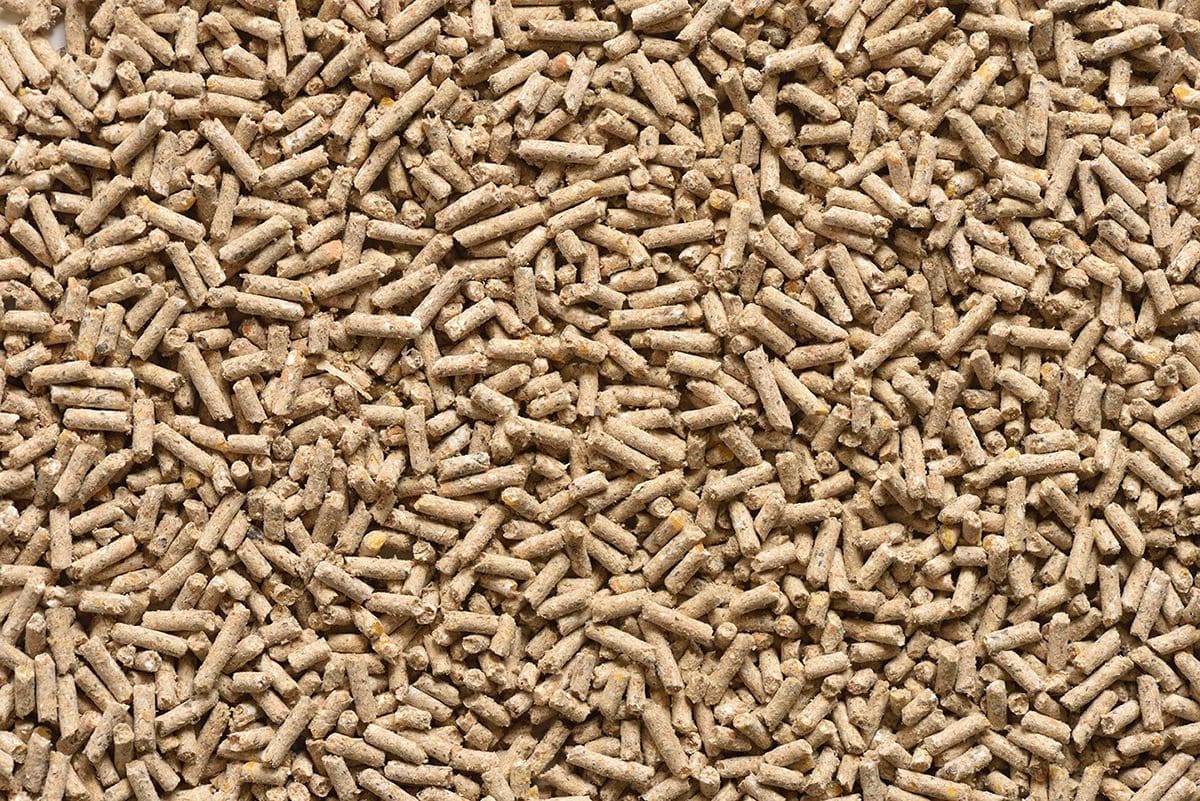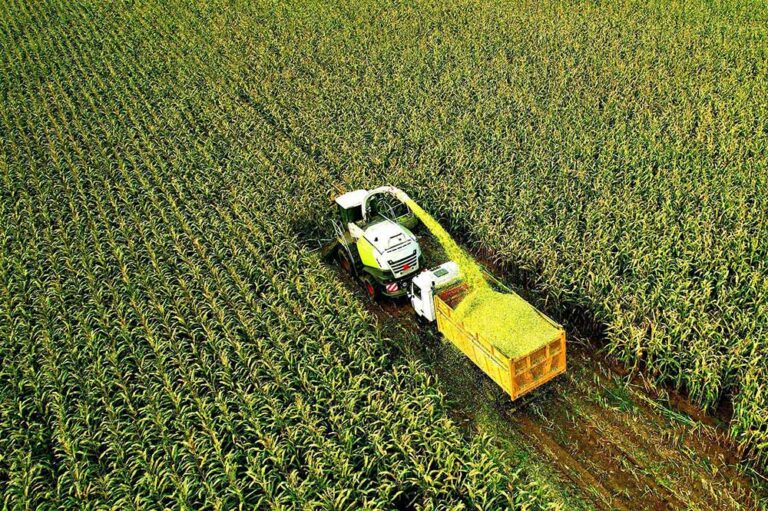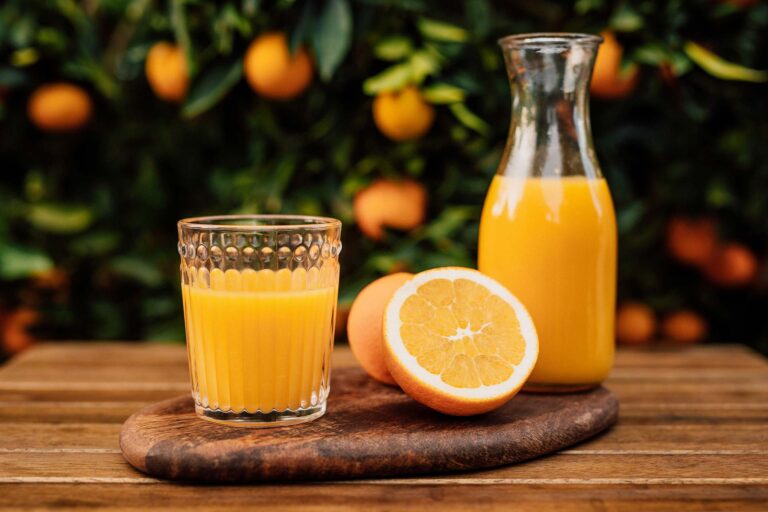Published in association with Nor-Feed
In today’s food sector, consumers are more than just buyers – they are the driving force behind every decision, from the fields to the grocery shelves. As consumers increasingly seek food products they perceive as healthier and less synthetic, natural, plant-based solutions are emerging as viable answers to some of the biggest challenges in food and farming.
This trend is especially critical in the animal agriculture sector, which faces ongoing scrutiny over its environmental impact and animal welfare concerns. As a result, plant-based solutions are gaining ground as sustainable alternatives to traditional practices.
Nor-Feed operates in the animal nutrition sector, offering natural feed alternatives that align with evolving consumer expectations. In our conversation with Olivier Clech, Nor-Feed’s CEO and Julia Laurain, Nor-Feed’s marketing director, we explore the driving forces behind this shift, the benefits of natural solutions, and how the company is pioneering alternatives to synthetic feed products.
[Expana] From your perspective, how has the natural solutions market evolved over the past decade?
[Olivier Clech] It is my belief that it is in animal agriculture, where we have seen the biggest shift to natural solutions. Since the early 2000’s, the use of antibiotic growth promoters (AGPs) has been banned in many territories, which has driven a more holistic approach, including the use of natural solutions to improve the growth of livestock. Beyond AGPs, the use of insecticides in animal production also became controversial.
Therefore, we have seen the emergence of various categories of alternatives. Plant based products or botanicals have been in the spotlight due to the promotion at the end-consumer level, with more studies showing consumers in Europe and North America in particular, are looking for food they believe to be less synthetic.
[Expana] What has driven the shift towards using natural products in the animal agriculture industry?
[Olivier Clech] During the second half of the twentieth century, the use of synthetic solutions in animal feed helped the meat, egg and milk industries to reach high levels of productivity while preventing diseases. However, the intensive use of these molecules over decades are believed by many to have contributed to the development of antimicrobial resistance and to increased risk of residues of these molecules appearing in both animal products on supermarket shelves and the environment.
Consequently, the agrifood industry started to seek natural alternatives- botanicals being one of the most important categories- that deliver benefits without compromising animals’ performances nor impacting the environment.
The animal production sector is one of the biggest users of freshwater and agricultural resources, as it accounts for approximately 70% of water and 30% of ice-free surface land use worldwide. So, the challenge is twofold for the agrifood industry: using natural products that are both efficient and sustainable.
At Nor-Feed we believe that food co-products are parts of the plant that are not of interest to humans, and these are being seen as one of the most promising sources of natural alternatives to synthetic solutions once you have extracted compounds of interest.
[Expana] What do you believe are the benefits of using natural products as opposed to synthetic ones throughout agrifood value chains?
[Olivier Clech] Natural products can be a great alternative to synthetic compounds.
Firstly end-consumers are broadly in-favour of natural products and the reasons for their implementation are easy for consumers to understand. Secondly, there is a generation of proven and well-documented solutions from different categories available on the market. Additionally, some natural solutions have seen to be as efficient as synthetic molecules, therefore, vets and nutritionists do not need to compromise between natural products or cost-effectiveness.
To ensure business longevity and trust, I believe your product must meet certain criteria: clear regulatory status, transparent composition, guaranteed concentrations of active ingredients, and a described mode of action. Plant-based solutions, like Nor-Feed’s ones, which meet all of these requirements are incredibly valuable to those in animal agriculture.
[Expana] You operate in the plant-based feed additives market. Can you tell us more about this for those outside of the feed sector? How do natural products like these compare to synthetic alternatives in terms of effectiveness, cost and sustainability?
[Julia Laurain] The plant-based animal nutrition market is growing. To meet the increasing demand for natural alternatives, the feed industry can tap into a broad range of solutions, going from relatively basic raw materials such as single plant meal, blends of plants, and specific qualified plant extracts.
These products differ in several aspects, including their characterisation or their specific ingredients, their level of standardisation between batches of product, and the concentration of active compound, all of which affect performance and application.
In the end it is important to reiterate the importance of in vivo trials to efficiently assess the real benefits and ensure a preservation or improvement of the animal’s performances.
Some specific plant-based feed solutions have demonstrated their in vivo efficacy. For instance, Benarbia et al., published 3 trials in 2022 suggesting that a standardised and selected saponin rich plant mixture is as efficient as monensin in managing coccidiosis.
Regarding sustainability, life cycle assessment (LCA) is an interesting tool to evaluate and compare feed additives. The method should be reviewed by external experts and peer-review publications are again a valuable tool to validate the methodology and its calculation. In 2023 Nor-Feed published the LCA, from manufacturing to distribution and use at farm level, of a commercial citrus extract feed additive in the journal Animals. This publication illustrates the capacity of Nor-Feed plant-based additives to be both efficient and sustainable.
[Expana] Nor-Feed has focused on providing solutions different from traditional antioxidants like vitamin E – can you tell us more about this?
[Julia Laurain] Alongside its function as a vitamin, vitamin E or alpha-tocopherol exerts physiological antioxidant activity in both mammals and birds. Polyphenols hold a unique place in animal production due to the benefit of diversifying physiological antioxidant sources in the diet. Polyphenols are naturally found in various plants (tea, certain herbs, and fruits, and more). Grapes are the most interesting source of bioavailable polyphenols with the highest antioxidant properties in vivo.
Over the last 20 years, Nor-Feed has used a strong evidence-based approach to develop an efficient grape extract, proven to optimise the use of vitamin E in feed. Thanks to more than 100 in vivo trials, the last one conducted at the Ciro University just about to be published, and a doctoral thesis, Nor-Feed’s dry grape extract is the most documented natural alternative to vitamin E in the market and has been safely used by feed players for many years. Over the past 6 months in particular, premixers, feed mills and integrators have made substantial cost savings using this product due to the rise of vitamin E price.
[Expana] What is the one takeaway you would like people considering buying natural supplements as an ingredient to consider?
[Julia Laurain] When it comes to using natural supplements, nutritionists and vets are demanding products with a precise and transparent composition and a described mode of action, to consider them as reliable solutions. This is Nor-Feed raison d’être: precise and meaningful Certificate of Analysis,’ and credible science proving the efficacy that stems from the botanicals’ metabolites and not a side molecule added there to standardise the product.
Nature offers a wide variety of botanicals with many biological properties of interest but sometime also anti-nutritional factors, irritants, or other undesirable substances. Selecting and characterising the right plant-extract for a dedicated purpose is critical. The standardisation of the characterised plant-extract ensures that active compounds will be present in desirable and precise amount batch after batch and so guarantees sustained field performances. At the end, reliable studies conducted with animals or birds remain the best tool to evaluate the interest of natural supplements, so you need to check in vivo data!
Published in association with Nor-Feed
Written by Robyn Gow



